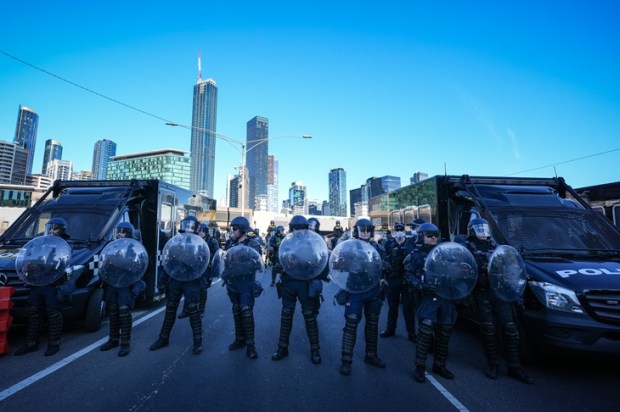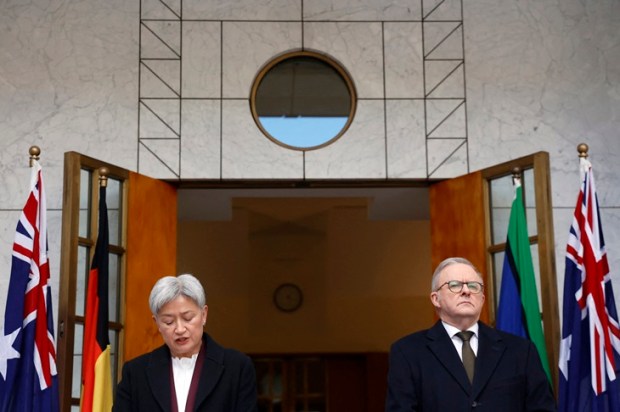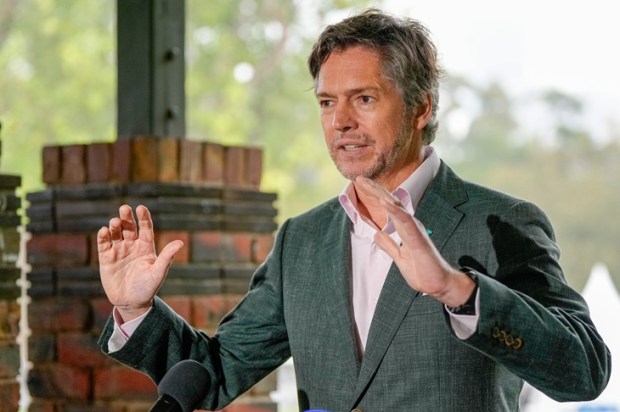The President of South Africa, Cyril Ramaphosa, who leads the African National Congress Party, has approved a law that will facilitate the forced acquisition of land based upon race if a white farmer refuses the terms of compulsory settlement.
The legislation chillingly promises to ‘expropriate land in the public interest for various reasons’ and includes that dangerous phrase we see here in Australia … to promote inclusivity and access to natural resources.
Inclusivity through theft.
AgriSA released a statement saying it was ‘disappointed by the signing of the Expropriation Bill into law by President Cyril Ramaphosa on January 23, 2025’ adding that the bill ‘poses a risk to private property rights which is the primary basis on which South African agriculture is structured’.
When coming to power, Ramaphosa promised to ‘return’ 30 per cent of agricultural land to black Africans by 2030.
The problem is, the original dispossession happened so long ago that there are no surviving victims or perpetrators. Land is being taken from innocent South African farmers and given to large groups of descendants who have been divorced from the land and were never large-scale farmers to begin with.
It would be like giving the young CHAZ Black Lives Matter protesters (who set up the failed apartheid market garden) huge cattle ranches without any instruction and expecting the business to survive.
People who are attracted to the easy money of socialist handouts are poorly suited to the devastating life of a farmer.
This reality has created a lot of confusion regarding the land-grab promise. Black South Africans are angry with their government after discovering that being handed a parcel of land does not automatically create millions of dollars. For generations they had been told by politicians that white farmers were rich because of the land, not because of what they did with it – a subtle but critical distinction.
In a similar pattern to other socialist regimes in Europe and Asia who attempted to re-assign farmland – particularly into collectives such as tribal groups – enormous stretches of prime land have been overrun by weeds and bush.
As the farmers leave, the infrastructure is pillaged and destroyed by locals. Eventually the surrounding agricultural businesses close. The same tribes who once demanded the repatriation of land from the white farmer are now complaining to journalists that there are no jobs, no money, no services, and no food.
The government has been left shouldering the economic disaster of this land transfer.
Not only are they handing out loans to black farmers who rarely return revenue, they are shuffling huge sums of reparation money to community groups who spend it all and then demand more.
At the same time, the formally successful white farmers are no longer filling the Treasury with tax revenue and so South Africa is becoming increasingly vulnerable to predatory Chinese investment and the conquest of agriculture by giant international conglomerates.
The government is trapped by its own folly, knowing full well that having angered black South Africans along racial lines, the party will face the wrath of the mob if the land grabs fail to redistribute prosperity.
Even if the farm transfers were to be reversed and the white farmers welcomed back, the experiment has opened the gates to a problem that has taken root – that is, the corporate mega farms.
These mega farms are a bigger problem than many realise, because of the disruption they have on the viability of the market.
Companies do not have a race and the government rarely chases them, meaning investors and clients feel more comfortable creating business deals. Supermarket chains do not want to buy 1,000 eggs from 100 farms, they want to buy a million eggs from a single company. These are numbers and financial arrangements that cannot be met by small to medium businesses.
The loss of these once-vibrant family farms has led to the collapse of nearby villages and the businesses contained within them. With no jobs, there is a second dispossession taking place as people leave their homes and head to the city.
It is a terrible corporate dystopia that every nation, including ours, faces because governments prefer to work with a handful of CEOs instead of an electorate of land-owning voters.
The short-sighted vengeance for historical wrongs is creating an environmental, economic, and social disaster for black South Africans.
Those black South Africans who attempt to work the farms in good faith face significant problems. As the government is socialist, the farm deeds are mostly transferred to the state which then offers 30-year leases. This means that South Africans are being shifted from a society of land owners to one of collective renters under the excuse of race and inclusivity.
As explained by the few remaining white farmers watching these events unfold, because black farmers are not given title deeds, they have no assets with which to acquire the bank loans required to fund the many expensive functions of a farm. They cannot buy seed, purchase tractors, spray the fields, or feed the crops.
Switching farm management from a tight business structure to an extended family or tribal group is a terrible idea and the wider notion of collective farming is a failure of concept. Without a chief decision maker, these farming collectives have fought bitterly amongst themselves, sometimes killing each other or destroying the property in their quarrel. Some have told stories about how they could not decide what to do with the land and their prolonged inaction left it in ruin.
Those that tried to farm did not know how, with one admitting, ‘We know we are suffering because we ourselves are not correctly utilising the land.’ Others felt the government owed it to them to hand them the solution and make them millionaires like they promised. The gap, as is always the case in socialist systems, is hard work.
As one white South African farmer said of those seeking their farms, ‘They do not want the farms, they want the compensation money.’
In 2010, it was already being reported by the BBC that 90 per cent of redistributed farms (which were negotiated on a voluntary basis in the late 90s) were not productive. Satellite maps of farms acquired by the state show the shocking decline of the land removed from white farmers.
Outbreaks of disease have started, including foot-and-mouth because there is no one to maintain biosecurity procedures and endangered animals, once protected by game reserves and law-abiding farms, are being poached.
White South African farmers are in the middle of a genocide, with row upon row of white crosses beside the highways representing the lives lost to murder and torture which is all-but ignored by the government.
Soon, there will be a different sort of genocide, one driven by a breakdown of the food chain. It has happened before, many times, and it will happen again in South Africa. Aid organisations are already warning of a food crisis and yet many of these humanitarian entities helped to incite the ‘moral cause’ of land seizure in the name of diversity.
South Africa is discovering that it does not matter how rich the ground is beneath a country. If the ideology is poisonous, everything will turn to dust.

























